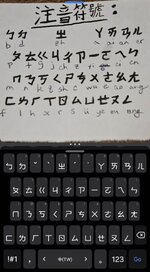I began to learn Italian through Duolingo, but after watching a video by the founder, the Guatemalan jew, I think I will pass on Duolingo and attempt the method found in Tim Ferriss's 4-Hour Chef book. He had a brief section on learning languages and he would translate children's stories or write down the most important/frequent words used for conversation or grammar and then drill those. I can't remember exactly, I have to go find it.
What turns me off about Duolingo is the insane gamification it has undergone. I have to pay to learn, essentially. They give you 5 hearts, and if you go through them you are done learning for a while. It punishes you for making mistakes and only allows precious few because they want you to upgrade. Also, the Guatemalan jew was bragging in his TED talk that the streak thing kept people coming back because they didn't want to break it. I don't like being psychologically manipulated so I purposely broke my streak in order to prevent the app from gaining control over me. With frequent use from over two weeks and allegedly learning 100 words I don't think much stuck in mind. My mother can speak Italian (never taught me) but when I was at a family gathering I could hardly remember any of the Italian I learned from Duolingo. I have bookmarked on my Youtube a video about acquiring language as opposed to learning it.
I think I built up like a 400+ day streak on duolingo for Russian before I reached the same conclusion. At best, I will say it certainly taught me some vocabulary, but the fact that it gives no explanations for grammar in a language like Russian renders it virtually useless. The gamification is very annoying as well as the globohomo art style.
Useful apps imo include LingQ, which has vast amounts of material you can listen to or read with transcripts and tap on words for definitions and save them for review, and you can also import material into the app. It’s very convenient, but perhaps a tad expensive, try it for a month before deciding on a longer subscription. There is also Learn With Texts, which is similar but requires some computer jittery-pokery to setup
italki is fantastic for finding inexpensive tutors, I think having a tutor makes things so much smoother in the early stages if the language you’re learning is very difficult for English natives. There is also Tandem for finding language exchanges, but this can be very mixed as some people seem to use it like tinder and women also want guys to follow their instagram etc.
I also recommend the book series “Short stories in [language]” by Olly Richards if you want to do more reading, they have them in a variety of languages and a variety of levels. It is very rewarding to go from understanding 30% of a short story to revisiting it and just reading it like you would in English with total comprehension.
You don’t necessarily need a spaced repetition app, but I use Anki as you can easily make flashcards. I’m too lazy to make the kind of flashcards women would make, linking words to images and having sound recordings of native speakers etc. I basically use it for writing down sentences as learning a word in context makes it much easier to slip into your passive vocabulary.
Once you get a vocabulary of 5000+ words the process becomes much more enjoyable as you’ll have a lot more freedom. The majority of my learning is done via input, listening to podcasts etc



